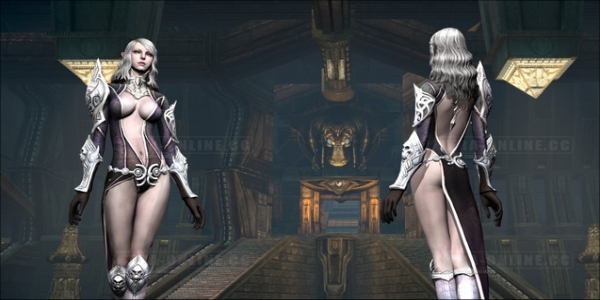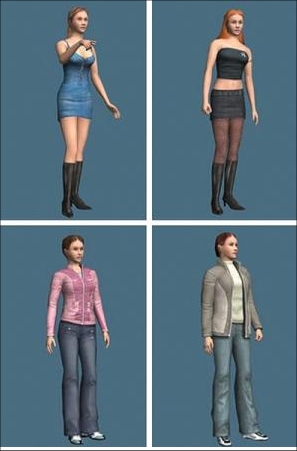Sexy Game Avatars Lead Females To Believe Rape Myths, Says Researchers

Your Daily Blend of Entertainment News
You are now subscribed
Your newsletter sign-up was successful
All that skimpy clothing and barely-there armor for female avatars in video games? Yeah, those apparently help contribute to females believing in many rape myths and contributes to females believing they're sexual objects, according to a very skewed report from Stanford's Virtual Human Interaction Lab.
Phys dropped an article about a controlled study about 3D avatar interaction based on a number of subjects; some were dressed conservatively while others were dressed provocatively. According to the research, some females put on some VR mo-cap gear and had a chance to examine themselves as a 3D avatar, they were then introduced to a male and proceeded to engage in a conversation.
Labeled the “Proteus Effect”, researchers found that the provocatively dressed avatars elicited a more “sexually objectified” stance from the participants as opposed to the avatars who were dressed conservatively.
As noted in the Phys article...
The researchers then introduced a male accomplice into the virtual world to talk to the participant. What seemed like a normal, get-to-know-you conversation was actually an assessment of how much the women viewed themselves as objects. Women "wearing" the sexualized avatars bearing their likenesses talked about their bodies, hair and dress more than women in the other avatars, suggesting that they were thinking of themselves more as objects than as people.
The participants were then subjected to a questionnaire in which they were asked some questions about their experience and whether they agreed or disagreed with various statements. Phys reports that females donning the “sexy avatars” were more inclined to agree with rape myths that the more provocatively dressed a woman is the more likely she is to be raped.
Achievement Unlocked: Agenda Achieved.
The article goes on to state how sexist and exclusionary the video game industry is and how females – making up 41% of gamers across the entirety of the industry – are too afraid to engage in games a lot of times because of all the scary neckbearded males.
Your Daily Blend of Entertainment News

The article completely ignores the fact that females out-number males in social, casual and mobile game consumption, where-as males out-number females in core (home console) game consumption.
Both markets cater to different groups while also trying to captivate as broad an audience as possible. It's the main reason why you won't find Max Payne 3 on iPhones moving a billion downloads, but you will find Angry Birds, Bejeweled, Diner Dash and Farmville moving big numbers with casuals on mobile devices and browsers.
In the same way that social games are catered mostly toward a female audience, you'll find that core games are marketed toward young male gamers who like to shoot and blow things up. Sort of like how action movies are geared to a specific demographic and romantic comedies are aimed at a specific demographic.
Regardless, I'm curious to know why Phys didn't talk about the opposite end of the spectrum: how do males feel about running around in loin cloths being body builders with shiny muscles? And how do males feel about playing as scantily clad women in games (because oftentimes in MMOs the female avatars dressed like prostitutes are usually G.I.R.Ls... Guys In Real Life)? What sort of effect does it have on how they view these issues in relation to real-life societal conditions?
There was an opportunity to explore something unique with the study, but sadly the research turned into something else and seemed to portray females as easily gullible to the sexual objectification that's purportedly propagated by the gaming industry.
Staff Writer at CinemaBlend.

